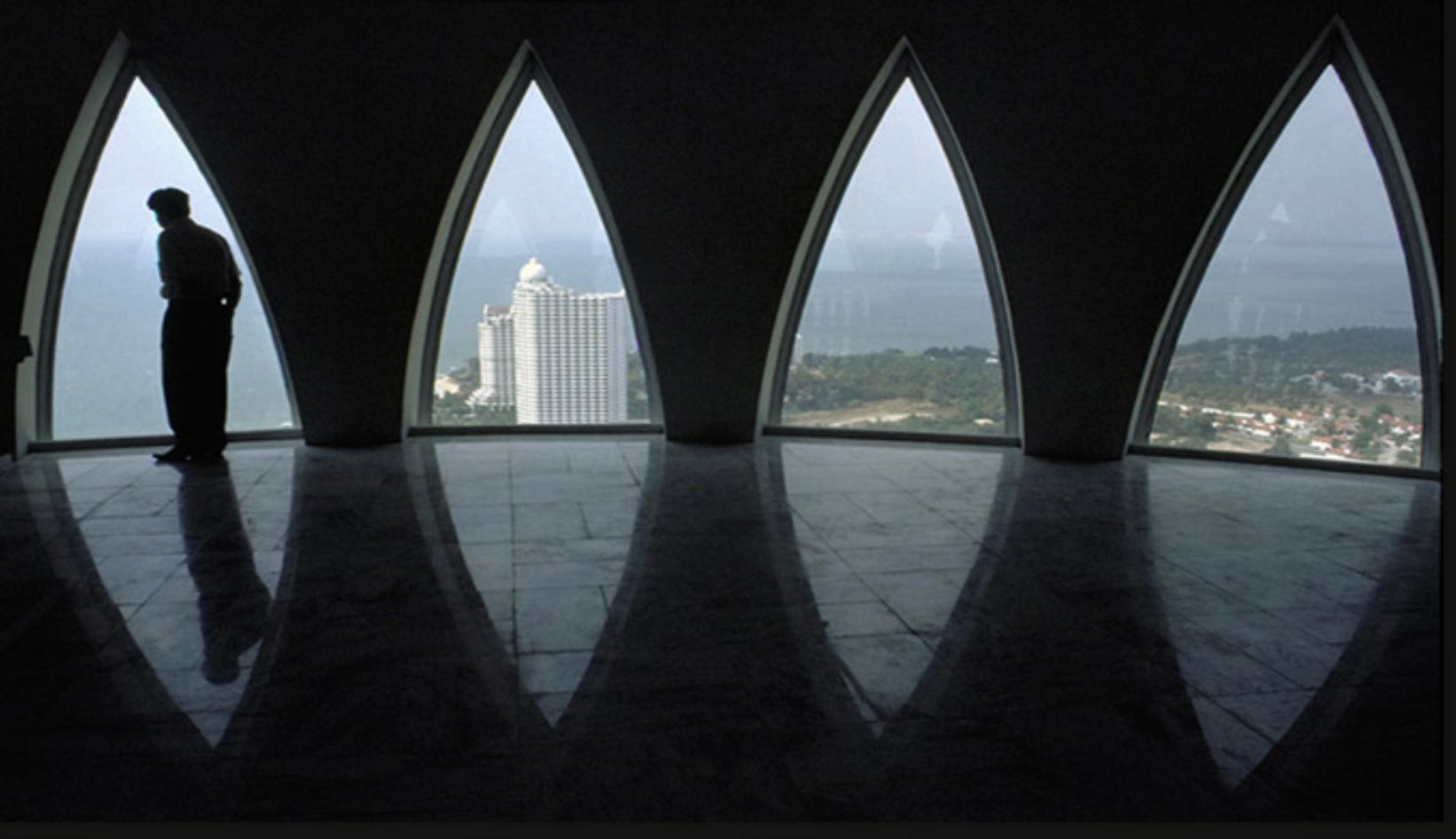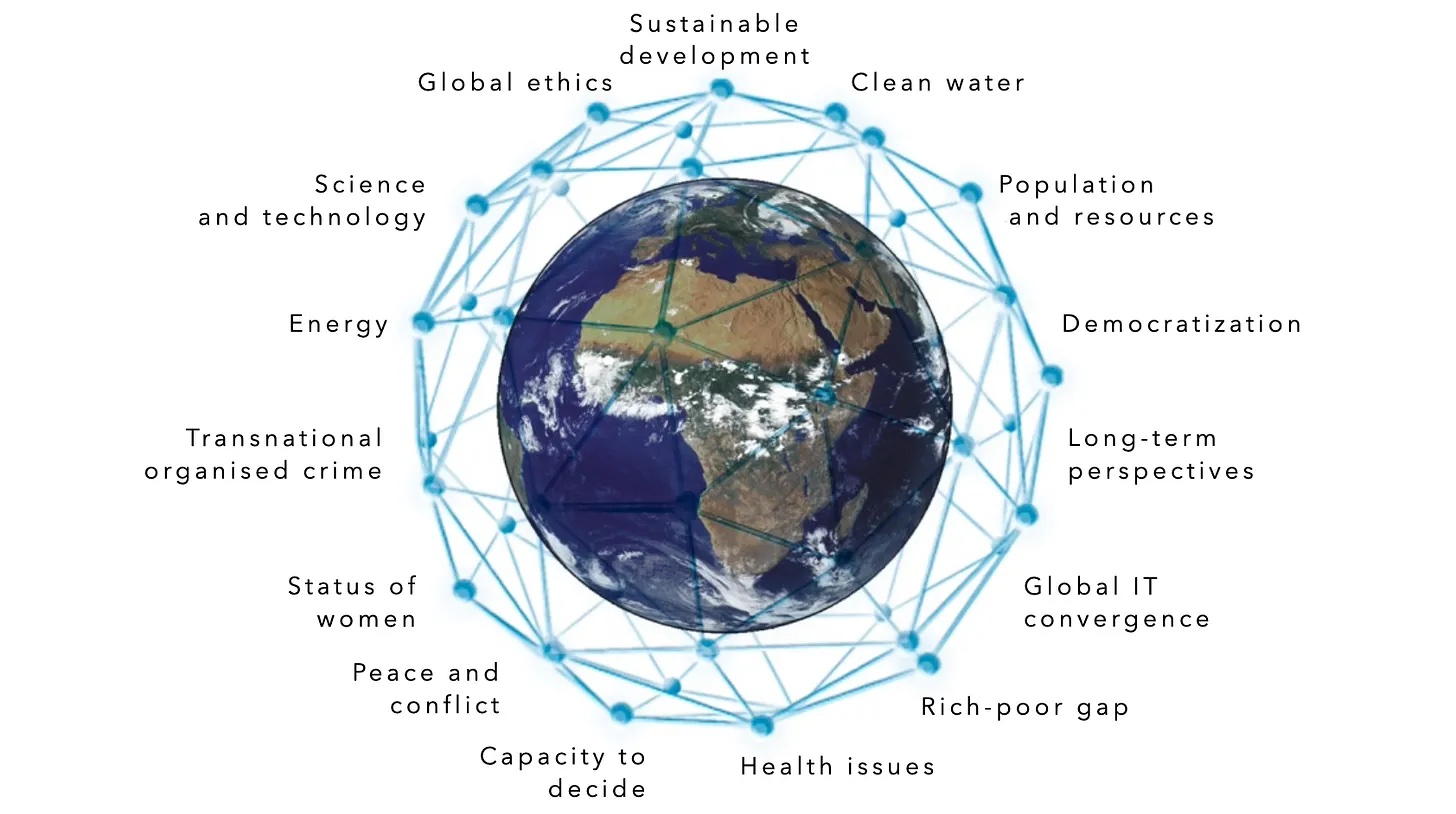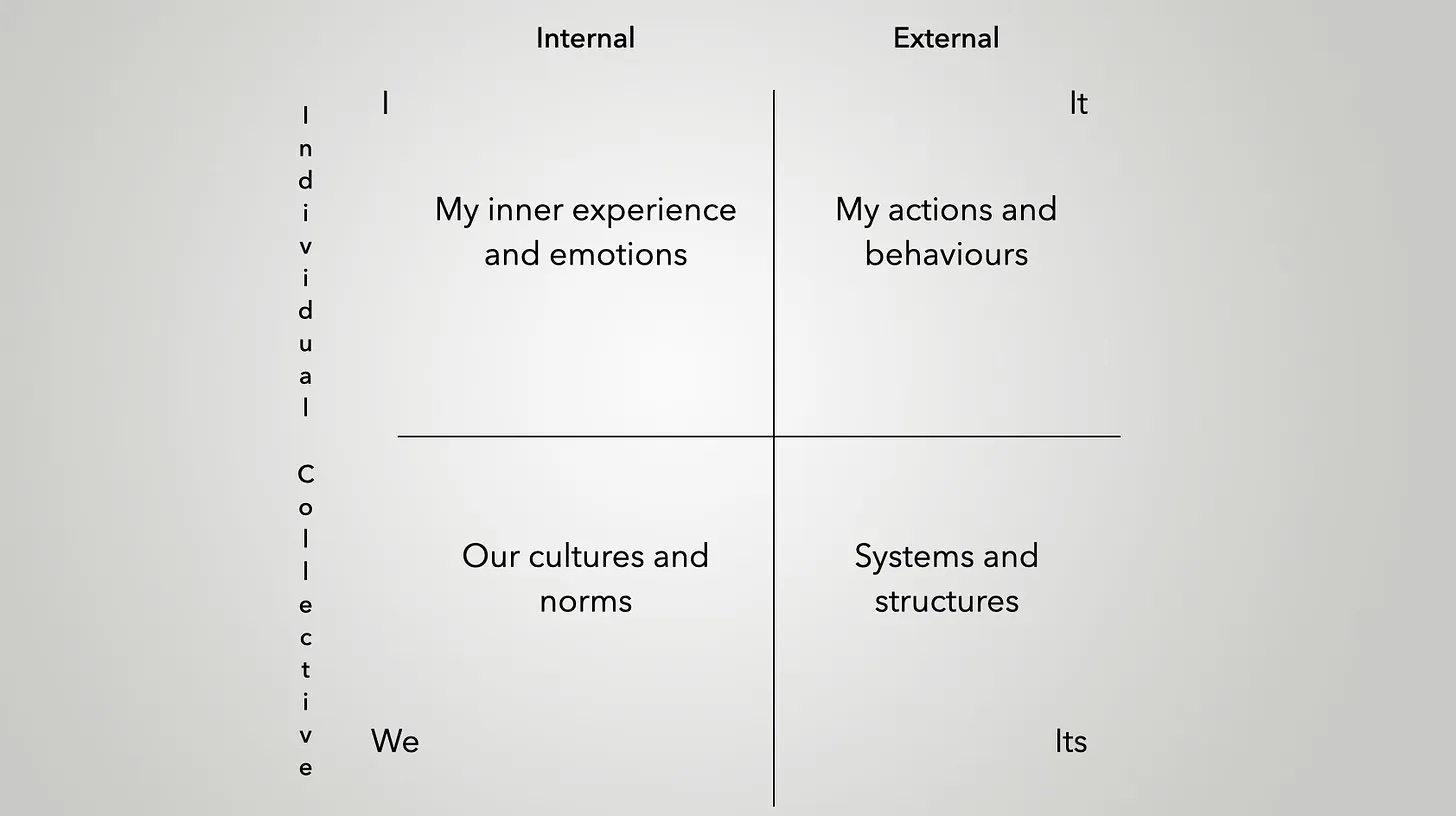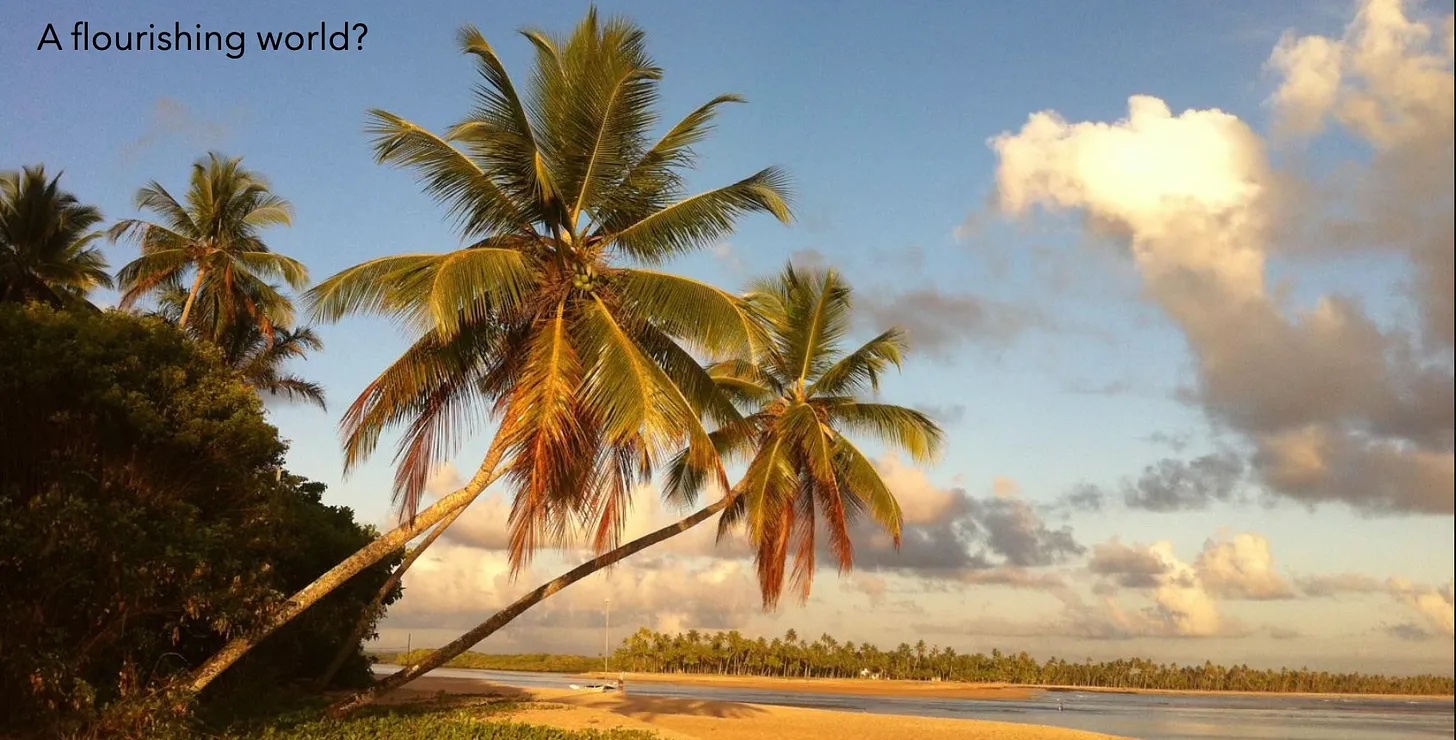Climate consciousness
70 students, a UN, MIT & Vienna simulation meet Integral. With inner and outer development can we transform humanity’s, and our planet’s temperature, trajectory? Try it!
Climate metrics are stark. We’re called on to dramatically change and limit average temperature rise to less than 1.5°C.
There are multiple stakeholders and loads of interlocking parameters:
- People are incentivised differently. E.g. financial institutions v’s the coal sector.
- There is a disparity of impact. E.g. Pacific Island nation v’s Western Europe.
- Policy that is good for one group may hurt another.
What do you do to positively impact this complexity?
To explore this Prof. Wendy Chapple (WU University Vienna) set up a beautiful experience based from the MIT & Climate Interactive En-Roads simulation.1

What does it take to transform our trajectory?
Imagine that you and 70 others are at participating in a UN climate summit. There are 9 groups representing:
- Developed nations
- Emerging nations
- Developing nations
- The finance sector
- Industry and commerce
- Conventional energy
- Clean technology
- Agriculture and forestry
- Climate activists

Your group can propose a climate action. E.g. tax coal, invest in reforesting land. However, propose coal tax and the conventional energy group might block it.
That’s unsatisfactory. Wendy’s previously found the groups come into conflict, try to make suboptimal deals and even resort to a little simulated bribery.2
Creating conditions for lives worth living for all sentient species is asking us to do a lot better. We need synergy: Outcomes between the groups that are more than the sum of their parts.3
Inner perspectives
A better quality conversation with people who disagree.
Daniel Schmachtenberger4
An essential shift is to empathise with other groups, to understand their values, to explore what it feels like to be them. We’ll find mutual needs and desires.
These are our inner perspectives: some are illustrated on the left hand side of the picture below/right.

CEO of the planet!
Try exploring these perspectives as the CEO of the entire planet. Imagine that you have no limits. You walk into your office in the morning and notice the chart you pinned up on the wall when you left last night. It is showing planetary interconnections:5
Seeing this you know that your full multiple intelligences are called for.

Try it
Wendy and I took the students through embodied exercises before the actual UN simulation.6 You can try one too.
Start, if you like, by taking out four pieces of paper and writing each of the following points on a separate piece:
- I: my inner experience and emotions
- It: my actions and behaviours
- Its: systems and structures
- We: our culture and norms
Put the four pieces of paper on the floor so they make a grid like the one below. Then it helps to do the next parts holding something to write on.

- Start by stepping onto the I paper, the paper in the top left.
As the CEO of the planet you may like to explore what are you feeling. How would you describe your inner experience as you stand there? As you are feeling all that you can do? And the whole planet? What emotions are prominent for you? It can help to write them down. - Now step onto the It paper.
Noticing what you feel, as you leave the I quadrant, shift to actions. What are you going to do first today?7 Where might you focus? Try imagining what you have already planned. What information is it most important? Who do you organise? Write down, if it’s supportive for you, your first set of actions for the day. - Next step onto the Its paper.
It’s likely you three is more than what you can do alone. Standing on Its try contemplating the interrelated systems. The greenhouse gas emission trajectories. Weather patterns and risks. The power of the financial systems. What do you restructure or re-conceptualise to interact differently? It can be useful to note down your choices and foci. - Step onto the We paper.
Extend from the systems, as you step of the Its quadrant, into your emotional and perceptual intelligences. Think about how people are incentivised to act. Remember cultures are the way that they are because they suit the majority of people the majority of the time8. What are the predominant cultural norms? You may like to make some notes about these norms and their impacts.
Home base: what was easy?
You’ll find that some of the concepts came more naturally. It is likely you have a preferred quadrant, a set of perspectives that correlate with being in that quadrant that are easier than in the others.
This is useful. It tells us what we naturally see more easily, what we may privilege. You can explore this further.
Try stepping into all of the quadrants again. Notice what you are feeling in your body in each. Is there a tension or an ease? A sensation? Many? Contractions? Relaxation? A color that goes with each quadrant? Pick a quadrant to stand in that feels the easiest.9

Impact
Wendy’s groups, within previous simulations, have found it hard to achieve an outcome below 2°C.
This time, with the design taking people into their values and inner perspectives before the actual UN scenario, Wendy and I observe students opening into and unfolding bigger realities.
Developing nations: We’re the developing nations, who’s going to listen to us?
Simon (coaching): Well, what other groups have shared interests? Can you propose something playing to their inner perspectives and values? What helps them?
And this happens! The groups find and propose synergies across themselves and with others.10
The collective group proposals take the simulation towards 1.5°C.11
|
Benevolution ⚡️ is a reader-supported publication on Substack. New content is mostly now on Substack with the occasional article reposted here on this website. To receive new posts and support my work, consider becoming a free or paid subscriber. |
Resources
Links and credits
I first wrote this article on my substack https://benevolution.substack.com
References
Subscribe
Get the newsletter (story summary).
Recent posts
Coming home
We belong to and are of the Earth but we bypass our sense of belonging. I missed this leaving home and my story mirrors our larger, human-wide journey. What do I need to come home?
Soulprint: Peak nature
Extraordinary: a paradigm shift by 147 governments and the UN endorsing “humans and nature are spiritually connected.” Invitation: to build on this for yourself and all of us.
We are in a portal
I’ve a deep knowing: we humans have shifted. That’s disorienting so here’s 3 handrails to help: this is sourced in bliss; lubricated by peak oil; agreed by UN & 147 nations; and, all with dragonflies!


0 Comments